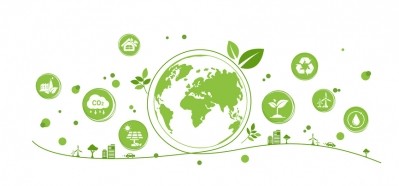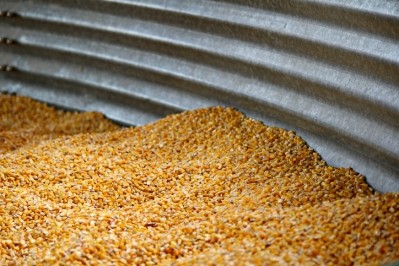AIC launches consultation on its deforestation and land conversion standard

The Agricultural Industries Confederation (AIC) is the representative body for the UK agri-supply industry. It aims to promote the benefits of agriculture in the UK and support collaboration throughout the food chain. AIC members represent 90% of the UK animal feed sector and grain and oilseed sectors.
The industry body said the standard has been developed to offer certification demonstrating that commodities, such as soy, have been produced without degradation of natural ecosystems.
Pillar 1– deforestation and land conversion– is based on the general principles that raw materials and products are supplied with the assurance that no legal or illegal deforestation has taken place since December 31, 2020, and that no land that is part of a natural ecosystem has been legally or illegally converted from its natural state since December 31, 2020.
To achieve certification against this pillar, audits will include verification at all levels of the supply chain necessary to confirm the effectiveness of a producer or processor's controls. This may include visits to the producer or processor's own operations, the regions from which any raw materials or products are being sourced and the supply chains along which they travel.
The draft standard forms a key part of the UK-verified deforestation and conversion-free (vDCF) soy transition plan, said the AIC.
That vDCF soy plan consists of several elements including a quarterly soy deforestation risk register for UK soy imports, tracking the UK’s progress in the importation of such soy, with the AIC collecting import volumes from the individual shipper and importer members and collating and anonymising the data. The delivery of the plan is coordinated by a high-level cross-supply chain governance group, with the support of expert stakeholders to monitor and review the transition, ensuring the risk and responsibilities are shared.
UK soy import data
Most of the soy imported into the UK comes from Argentina, Brazil, US, Canada and Paraguay.
The AIC maintains that its soy supply data shows that 70% of soy imported into the UK comes from sources carrying no deforestation risk, meaning it is covered by zero-deforestation standards set by soy scheme owners or covered by Amazon Soy Moratorium (ASM) contracts or grown in territories with no deforestation risk, such as the US and Canada.
Of the remaining 30% of imports, research shows that the majority (27%) of this figure is considered low risk of any deforestation using the European Feed Manufacturers' Federation (FEFAC) methodology, said the trade group.
This leaves 3% of UK imported soy that carries a risk of deforestation.
In the UK, the Roundtable on Sustainable Soy was established in 2018 to provide the UK industry with an open forum to work together towards a secure, resilient, supply of deforestation free sustainable soy to the UK.
That roundtable now comprises over 30 members, including major supermarkets, processors, farming organisations, feed businesses, foodservice businesses, and soy traders.
More recently, UK retailers and food processors have committed to vDCF soy through the UK Soy Manifesto. All stakeholders, including the soy importers and the feed industry are working to deliver a viable national transition plan towards vDCF soy.
Reduction in soy use
The AIC outlined how the animal feed and UK livestock sectors have taken great strides to reduce their reliance on imported soy. “For example, in the past 10 years the British pig sector has halved its soy use.”
“Livestock feed is made up of cereals, pulses, oilseeds, and their co-products which are non-edible for humans, products from the food industry (bread, pasta etc), grass and silage feed additives such as minerals, trace elements and vitamins. None of these alone however provide the same amino acid profile, nutrient density, or digestibility to animals as soy, which is why they are used in combination in rations.
“There is considerable research taking place into novel proteins, such as insects, algae, and single cell proteins. These sectors are in their infancy and significant investment is required to scale up and develop a catalyst to these technologies.”
Retained EU legislation in the UK, however, does not allow insect protein to be fed to pigs and poultry, it added.
Due diligence
The UK government has accelerated its own commitments on illegal deforestation with support for the UK Roundtable on Sustainable Soy and a plan to introduce a requirement for due diligence for large companies handling ‘forest commodities’ within the Environment Act.
The challenge now is to ensure that the legislation is well targeted, and can work with supply chains, farming businesses and retailers, said the AIC.
The legislation must take account of imported products carrying ‘embedded’ soy (such as processed foods or imported meat) and ensure they are clearly under scope, said the UK feed sector representatives. “Failure to consider this at all could lead UK farming businesses placed at a competitive disadvantage on food standards.”









